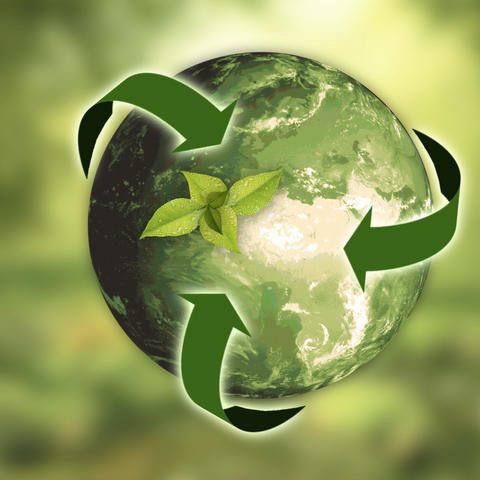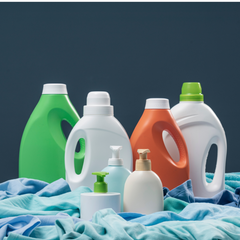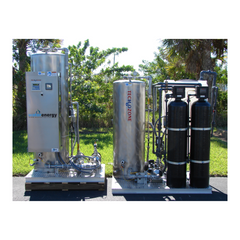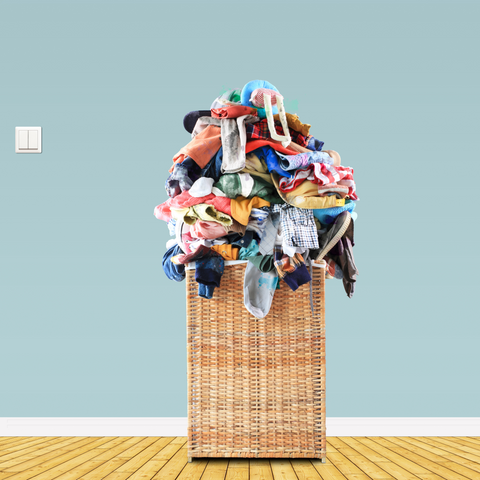Sustainability: Cleaning Clothes with a Clean Conscience
Consumer awareness of environmental issues fuels the move towards sustainability in the laundry business. People want their laundry habits to be consistent with their principles of minimising their influence on the environment and reducing their carbon footprint.
The laundry industry has responded by creating energy-efficient washing machines, a step towards sustainability. The environmental impact of laundry is decreased by these machines' lower energy and water consumption compared to conventional models. This helps people save money on their utility costs in addition to helping the environment.
The laundry business increasingly uses biodegradable cleaning supplies and detergents in addition to energy-efficient machines. Products produced from natural materials that decompose in the environment reduce waste and have a minimal negative impact on the environment.
For instance, a consumer may use a washing machine with a high energy rating and couple it with a natural-ingredient biodegradable laundry detergent. This combination lessens the carbon impact on the consumer and promotes a more sustainable future.
In conclusion, the laundry industry's drive towards sustainability is a healthy development that helps the environment and consumers. The business is making significant strides towards a greener future by utilising energy-efficient machinery and biodegradable products.
Convenience: Streamlining the Laundry Process
People are searching for methods to make their daily duties, such as doing laundry, more convenient and time-effective as their lives become more stressful and fast-paced. The laundry business is creating inventive methods to expedite the laundry process in response to this demand.
Consumers can now manage their laundry from their smartphones thanks to intelligent washing machines with features like delayed start, remote control, and automatic dispensing. By being able to initiate and terminate the wash cycle, modify settings, and get alerts whenever they choose, they may save time and effort.
The popularity of laundry delivery and pickup services is growing alongside smart technology. Customers who use these services can save time and effort by having their dirty clothes picked up from their homes, cleaned, and folded before being delivered back to them. People who have hectic schedules, may not have the time to wash their own laundry, or live in places with few laundry facilities will find this to be of particular convenience.
Overall, the laundry business is progressing significantly in offering customers more practical and time-saving washing solutions, making it more straightforward and more effective for individuals to maintain their clothes' cleanliness and freshness.
Health and Wellness: Clean and Healthy Laundry
The laundry industry has been impacted by the push towards health and wellness in addition to the food and exercise sectors. Consumers are searching for safer, more natural alternatives in their laundry routines as they become more conscious of the effects of chemicals on their health and the environment. The laundry business has responded by introducing several technologies to encourage cleanliness and hygiene.
Using hypoallergenic detergents is one of the most important breakthroughs in this field. These detergents are a popular option for persons with sensitive skin because they are carefully developed to lower the risk of skin irritation and allergies.

Ozone laundry systems are another innovation that is gaining favour. Ozone laundry systems employ ozone gas to sanitise and clean clothes instead of the chemicals used in typical washing methods. This procedure not only makes laundry safer for those with sensitive skin but also lessens the impact of laundry on the environment.
The usage of UV-C light technology is likewise becoming more and more common. This method adds another layer of sanitisation by using UV light to eliminate germs and viruses. This method is beneficial in today's society, as the continuous COVID-19 pandemic has raised the demand for clean, hygienic laundry.
The consumer demand for safe and natural alternatives in their washing operations motivates the laundry industry's focus on health and well-being. In addition to helping to meet this need, adopting hypoallergenic detergents, ozone-washing systems, and UV-C light technology is encouraging a more healthy and sustainable future for the sector.
Customisation: Personalising the Laundry Experience.
Customers want individualised laundry experiences, which may include adjusting the wash cycle to suit their requirements. The invention of cutting-edge washing machines that employ artificial intelligence to personalise settings and optimise wash cycles is driving this trend.
As an illustration, smart washing machines can employ sensors to determine the kind and quantity of laundry in a load and modify the wash cycle as necessary. This ensures that every laundry load is washed quickly, effectively, and with minimal waste of water and energy.
Integration with Smart Home Technology: The Future of Laundry Control.
It's becoming more and more common to combine laundry systems with cutting-edge home technology, giving customers the ability to manage their washing machines from their smartphones and other connected devices. This trend is anticipated to grow as technology develops and enables people to handle their laundry more quickly and conveniently.
Customers may control their washing machines remotely using their smartphones, for instance, and even get notifications when a load is finished. This facilitates laundry operations and saves time and labour.



